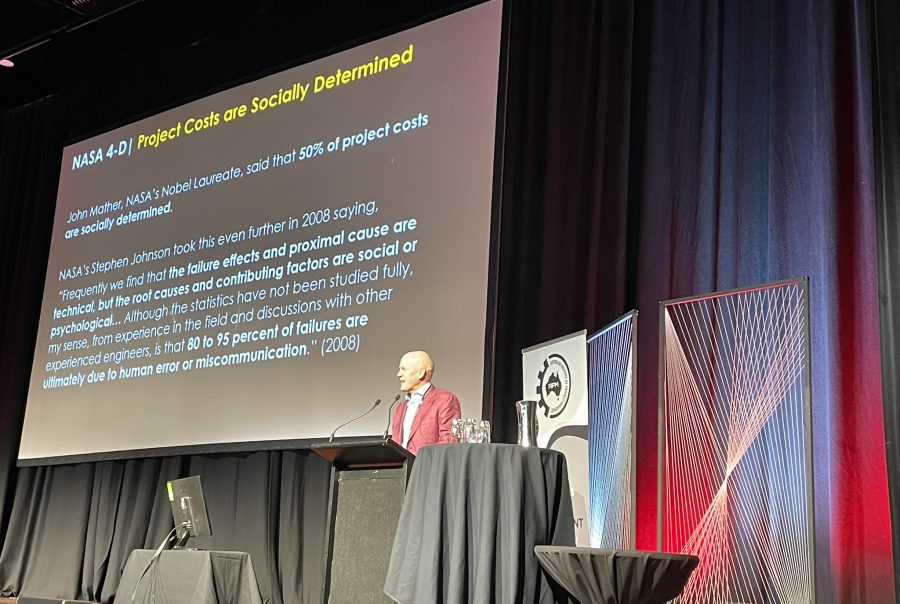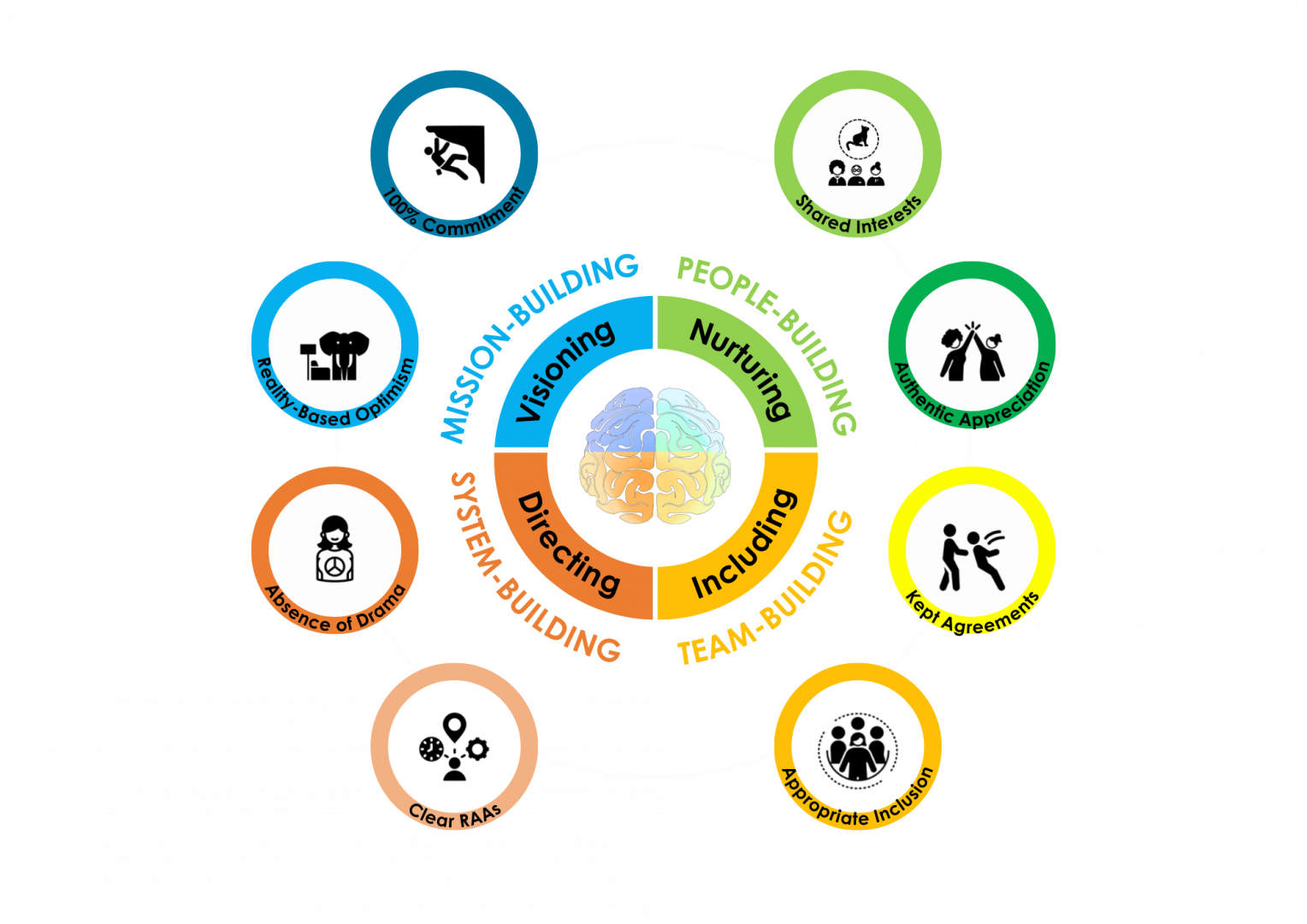WHEN IS TRAINING INSANE?

Culture, or ‘social context’ as NASA call it, far outweighs individual skills or capabilities as a determinant of team and organisational success. Sustaining high performance becomes a virtual impossibility when the social environment is not psychologically safe and supportive. NASA learned this at great cost through a string of failed missions and shuttle disasters, before acknowledging that what leaders really needed was the ability to shift social context in which team performance was taking place. Since then, the ‘4-D’ program developed by NASA’s Director of Astrophysics, Charlie Pellerin, has become a benchmark for leadership development, both in NASA and around the world. It has been voluntarily completed by over 1,500 NASA teams, and has contributed to NASA becoming the Best Place to Work in US government for the twelfth year in a row (as at May, 2024). Here’s how they did it:
- 1. Focus on Context, Not Content
- 2. Identify the Levers for Social Context
- 3. Don’t Stop at Psychological Safety
1. Focus on Context, Not Content
Once individuals have the essential skills to perform their jobs, the return on further upskilling starts to diminish. According to Charles Pellerin, shifting the focus to influencing the social environment constructed by teams themselves conservatively achieved an ROI (Return on Investment) of 450% for NASA. In the words of a former Raptor Squad (Organised Crimes Unit) Commander:
“Having studied Leadership for many years, the NASA 4-D Leadership Program was an amazing life changing journey, helping me to build better teams and navigate the most hostile environments I could imagine. The program brought together a group of intelligent professionals and challenged them to see the world differently. The logical pathway from building people to developing them into a team and designing strong systems to create the ideas to drive progress makes sense and I have been applying it to my everyday life. I can’t highly recommend this excellent program enough. Now I just need my own rocket!”
2. Identify the Levers for Social Context
Having acknowledged that it was social context and not individual skills that would drive future performance, NASA then invested heavily in understanding what the evidence-based drivers of social behaviour were. Although the initial program relied heavily on the psychological research of the time, these behaviours have since been strongly validated by studies in social neuroscience. The eight behaviours depicted below hold the keys to psychological safety and high performance.

To activate these behaviours, the program focuses on eight leadership capabilities that must be applied to shift the social context. they are:
- 1. Connect a team and create a sense of shared purpose.
- 2. Develop individuals relative to their idiosyncratic strengths.
- 3. Set and maintain individual boundaries and team standards.
- 4. Include appropriately, whilst avoiding over-inclusion.
- 5. Align role, accountability and authority to maximise autonomy.
- 6. Challenge dysfunctional beliefs with radical candour.
- 7. Acknowledge uncomfortable truths and drive optimistic change.
- 8. Co-create a compelling vision and communicate it effectively.
To quote the Chief Technology Officer of a listed company:
“The NASA 4-D Leadership Program is truly unique as it helps leaders understand and then shape their context through the application of 8 key behaviours. The upfront leadership benchmarking provided the important baseline from which to build, whilst the exercises were engaging and unique. Who doesn’t want to pretend they’re an astronaut for a day or so? 4-D was an investment in self-development and inspiration and one that I would recommend to other leaders wishing to build high-performing teams.”
3. Don’t Stop at Psychological Safety
Whilst psychological safety has been established as a non-negotiable by Amy Edmondson and studies like Google’s Project Aristotle, it is not a sufficient condition for high performance. Teams need to go on to embrace role clarity and high levels of accountability, committing themselves 100% to lofty standards and ambitious goals. Four of the eight NASA behaviours establish psychological safety, whilst the other four focus on high-performance. The need for both safety and exacting standard is well depicted in the following matrix:

“The NASA 4-D leadership course came at a perfect time for me as I’m building a new team and I was able to immediately use the lessons and tools. I felt we were already on track to become a high-performing team, but this course gave ownership to our individual team members, and I think that will make us a high-performing team for a very long time. The course materials were relevant, professional, and engaging and I enjoyed learning about my incredible classmates’ challenges. Though the class was virtual, I really felt connected through the discussion and exercises.” – Major, US Military
If you are ready to make your leadership extraordinary, based on learnings from the current space program and neuroscientific research, the next online public program kicks off on Monday, 25 November 2024 at 12:00pm (AEST). The program runs over 4 weeks with 2 sessions per week on Mondays and Fridays. The sought-after 4-D accreditation comes in the form of a digital badge that can be pinned to your LinkedIn profile. Black Friday sale is here! Get a 40% discount if you register before 25 November 2024 . Use discount code ‘BLACKFRIDAY24‘ upon registration. REGISTER HERE .
For organisations preferring to run the program internally, the program can be tailored to your culture and operating cadence, with the option to benchmark (pre and post program) against 1,500 NASA teams.
For more information on this option, please contact rosanna@crazymightwork.com
If you would like to learn more, follow the registration link above, or listen to this recent interview of Paul Hawkins by Adam Thorn at the Australian Space Summit & Exhibition (May 2024). In this podcast interview, Paul describes the revamped program and how it has been transformative for organisations. LISTEN HERE
Want original, well-researched articles like this on a monthly basis? Sign up for our newsletter. Subscribe and share below!


